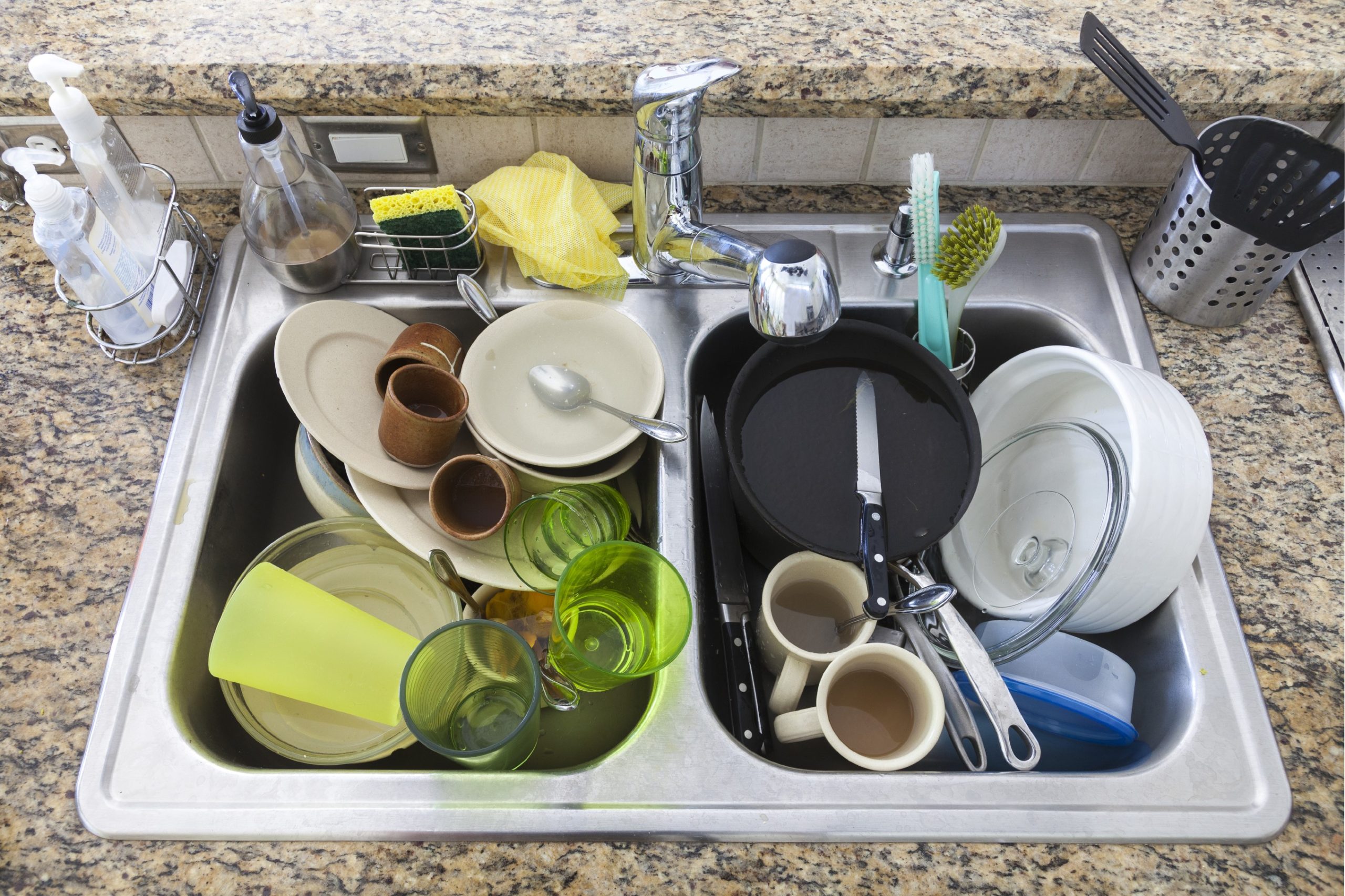WHY ASK?
Dishwashers use water. And fresh, clean water is an extremely limited resource. This limited resource is heavily impacted with things like droughts, contamination, and wasteful use. So basically, anyone who has easy access to fresh water should take careful steps to limit their water use.
Water Conservation
People should do their best to conserve water for three reasons.
- The less water used or wasted by people, the less clean water will become contaminated. Using excess amounts of water can put strain on septic and sewage systems. Which in turn, can lead to contamination of groundwater. This happens as the untreated, dirty water seeps from the sewage system into the ground.
- Water conservation reduces energy use and saves households money. The less water a household uses, the less they have to pay each period. Appliances that use water, such as washing machines and dishwashers, also use a considerable amount of energy.
- Conserving water now allows cities and regions to plan for more efficient use of the water resources in the future. If most of an area’s clean water is wasted, there will not be water for future generations to use. This means that the city will need to come up with new ways to produce clean, fresh water, which will ultimately be at your expense (yup, a lose lose)

Environmental Impact
A study out of the University of Bonn in Germany, reported by Pablo Päster in the May/June issue of EatingWell Magazine, found that washing a load of dishes (12 place settings) by hand uses on average 27 gallons of water and 2.5 kilowatt-hours of energy to heat the water. This energy consumption is equivalent to running a hair dryer for two and a half hours.
By comparison, an energy-efficient dishwasher uses about four gallons of water and 1 kWh of energy per load. Researchers also found that dishwashers cleaned better, as half of the hand-washers failed to reach an “acceptable level” of cleanliness. Due to our hands inability to withstand scalding hot water, which is necessary for proper cleaning.
So as you can see, dishwashers use less water, less energy, and less time. Crazy to think, but that big box under your counter is actually a super energy and time efficient device.
-benefits-
Dishwashers save energy:
An Energy Star certified dishwasher can use as little as 3 gallons per load, according to the Natural Resources Defense Council. In fact, an Energy Star certified dishwasher can save almost 5,000 gallons of water per year. If your dishwasher was manufactured in or after 2013, it will meet the new standards that require dishwashers to use as little as 5 gallons per load. If that sounds like a lot, units built before 1994 used as much as 10 gallons per load.
Dishwasher require hot water to work. Where does this hot water come from you ask? Well it comes from your (outdated and energy inefficient) water heater. So, less water equals less heating which saves you energy and money. Additionally, most newer dishwashers actually have heaters inside that warm up water more efficiently than your water heater.

Dishwashers get dishes cleaner:
It takes water that is 140 or 145 degrees Fahrenheit to fully sanitize dishes. And unless you’re superman, your hands can’t handle that kind of heat. So, let your dishwasher deal with the high temperatures while you sit back and relax.
Dishwashers are convenient:
Perhaps the greatest advantage of using a dishwasher is convenience and time savings. The U.S. Department of Energy estimates that using a dishwasher can save you up to 230 hours of personal time each year.
Additional Tips
-
Don’t rinse by hand:
Rinsing your dishes before you stick them in your dishwasher is majorly wasteful. Pre-rinsing wastes more than 6,000 gallons of water per household every year. In fact, most newer dishwashers can handle bits of food. Don’t worry, your dishes will still come out clean as long as you scrape the big stuff into the trash (or compost pile).
-
Make sure you have a full load:
All of the savings that I stated only apply to full loads. If you can’t seem to fill up your dishwasher once a day, use the rinse and hold feature. This will prevent food from drying and sticking until you get around to starting a load and will still help you be green.
FINAL WORDS
Let’s get some terms down. Non-Energy Star dishwashers use about 6 gallons per wash, while Energy Star dishwashers only consume about 4 gallons per wash. Price is not everything when it comes to efficiency. As long as it is Energy Star rated, it will still only use 4 gallons and have the same results as a more expensive machine.

Leave a Reply